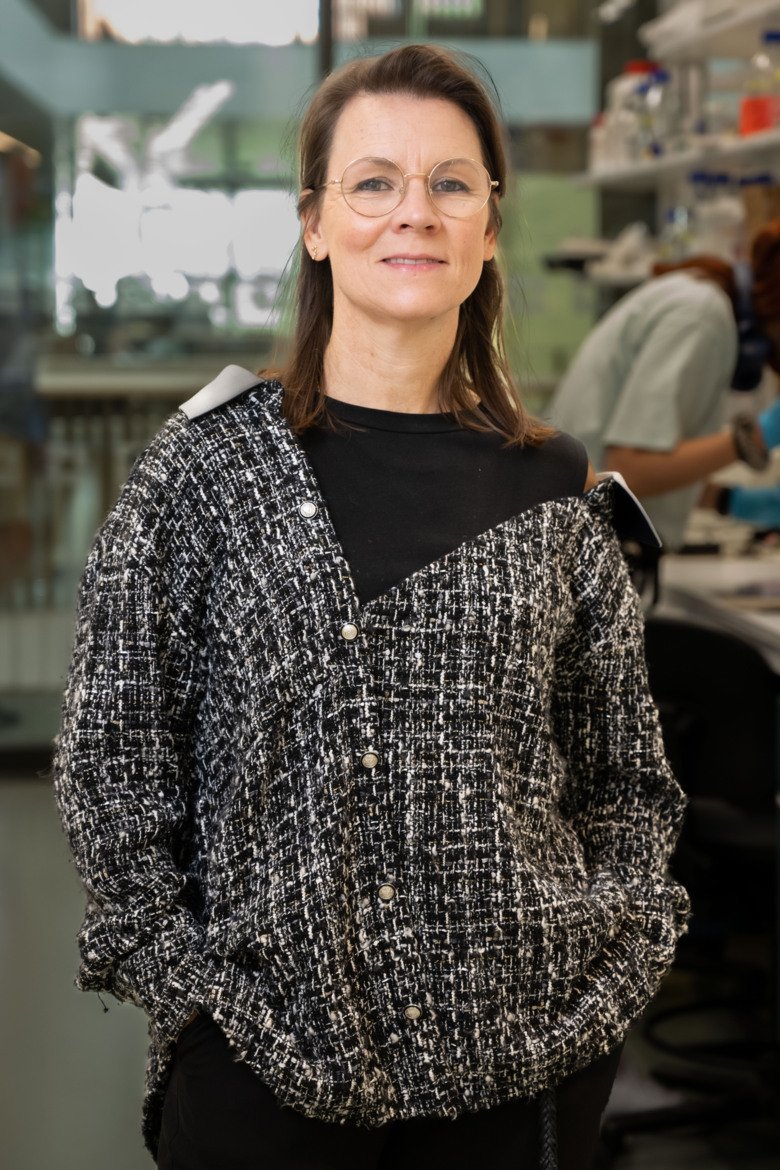Studying neuronal activity in real-time
The prefrontal cortex is the centre for advanced cerebral function – it is here our impressions of the world are formed, plans forged and decisions made. By studying the real-time activity of neurons, Marie Carlén maps the functions of the prefrontal cortex.

What are you researching?
“My research interrogates how the part of the brain called the prefrontal cortex, or PFC, works. The PFC is essential for cognition, which is to say advanced mental processes such as attention, learning, decision-making, planning and evaluation. Diseases such as autism and schizophrenia as well as addiction have been linked to aberrations in PFC function.”
How are you researching this?
“We’re studying the PFCs of mice and rats. Fundamental aspects of brain structure and function are shared by mammalian species. Much of our research has been made possible by new tools that we adopted at an early stage. As a postdoc at MIT, I used the then new technology optogenetics to test central hypotheses on the biological basis of cognition. About four years ago, there was another technical breakthrough that enables the recording of the activity of hundreds of neurons simultaneously. We now have the possibility to properly decode how neuronal activities in the PFC enable cognition. This technological advancement has revolutionised the field and we’ve just finished gathering data in a large project in which we’ve spent three years recording PFC activity during cognitive processes in mice. This huge dataset, which includes activity from all parts of the PFC, we’ll now be analysing. It’s as difficult as it is exciting – there are no similar studies and we don’t exactly know what we’re looking for.”
What do you want to achieve in your research?
“Knowledge of the PFC is fragmentary and we have no overall understanding of the principles of how this part of the brain works. I’m trying to change that by conducting curiosity-driven basic research focused on how the PFC is structured, and mechanistically function. My goal is to help bring about a conceptual breakthrough in our understanding of the PFC. Such knowledge can give insights into the biological basis of abnormal cognition in mental illness and how it can be treated.”
Text: Anders Nilsson, in translation from Swedish
First published in the booklet ‘From Cell to Society 2022’
About Marie Carlén
Professor of Neuronal Networks, specialising in Cognitive Mechanisms at the Department of Neuroscience
Marie Carlén was born in Örnsköldsvik in 1970. She studied biology at Stockholm University, graduating in 1999. After obtaining her PhD in medicine from KI in 2005, she did her postdoc research at the Massachusetts Institute of Technology, USA, from 2007 to 2010, after which she has been leading a research group at KI. Carlén was awarded the Sven and Ebba-Christina Hagberg Prize in 2010. She has also received numerous grants, including an ERC Starting Grant and a Swedish Research Council Consolidator Grant, and has been made a Ragnar Söderberg Fellow in Medicine, a Wallenberg Academy Fellow and a Wallenberg Scholar. She was made docent in 2017.
Marie Carlén was appointed Professor of Neuronal Networks, specialising in Cognitive Mechanisms at Karolinska Institutet on 1 April 2022.
